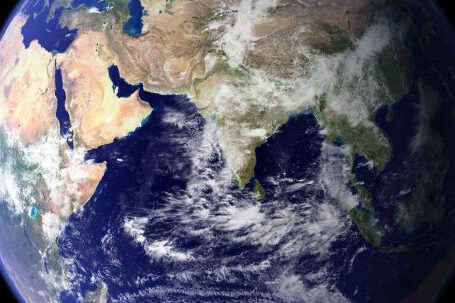In the vast expanse of the universe, the idea of colonizing other planets has captured the imagination of scientists and dreamers alike. Exploring new worlds and expanding our horizons is an innate human desire, and the possibility of establishing colonies on other planets seems like the next logical step in our quest for knowledge and survival. But how could we actually make this a reality?
Identifying Suitable Planets
The first step towards colonizing other planets is to identify those that are suitable for human habitation. Scientists have been tirelessly searching for exoplanets that are within the habitable zone of their respective star systems. This zone refers to the region where conditions are just right for liquid water to exist, a crucial component for supporting life as we know it. Identifying these planets is essential, as they offer the best chance for sustaining human settlements.
Building Sustainable Habitats
Once suitable planets have been identified, the next challenge is to build sustainable habitats that can support human life. Unlike Earth, these planets may not have breathable atmospheres or adequate resources readily available. Therefore, we would need to design and construct habitats that can provide a self-sustaining environment for colonists. This would involve creating systems for air purification, water recycling, and food production, among other necessities.
Developing Advanced Transportation Systems
Transportation is another significant aspect to consider when it comes to colonizing other planets. The distances involved are vast, and the current methods of space travel are not efficient enough to make colonization a feasible option. To overcome this challenge, scientists are exploring new technologies such as ion propulsion and warp drives, which could potentially allow us to travel at faster-than-light speeds. Developing advanced transportation systems is crucial if we are to reach these distant planets within a reasonable timeframe.
Ensuring Safety and Survival
Colonizing other planets would undoubtedly come with its fair share of risks. The harsh environments, potential for unknown dangers, and the inherent challenges of sustaining life in space pose significant threats to human colonists. Ensuring their safety and survival would require extensive research and development in areas such as radiation shielding, medical technologies, and emergency response systems. It is crucial to address these risks comprehensively to minimize the potential for disaster.
Maintaining Connection with Earth
While colonizing other planets may involve creating self-sustaining environments, maintaining a connection with Earth would still be essential. Communication with our home planet would provide much-needed emotional support for colonists, as well as the ability to exchange information and resources. Establishing reliable communication systems, such as advanced satellites or even interplanetary internet, would be vital for the success of any colonization effort.
Ethical Considerations
As we venture into the realm of colonizing other planets, we must also consider the ethical implications of our actions. It is important to approach colonization with a mindset of respect for the indigenous life forms that may exist on these planets. Just as we strive to protect and preserve our own environment on Earth, we must extend the same courtesy to other worlds. Striking a balance between exploration and preservation is crucial to ensure the long-term sustainability of any colonization efforts.
Conclusion
The possibility of colonizing other planets is an exciting prospect that holds immense potential for the future of humanity. Through identifying suitable planets, building sustainable habitats, developing advanced transportation systems, ensuring safety and survival, maintaining connection with Earth, and considering the ethical implications, we can pave the way for a new era of exploration and expansion. While challenges undoubtedly lie ahead, our ingenuity and determination will propel us towards a future where interplanetary colonization becomes a reality. The journey may be long, but the rewards are immeasurable.





